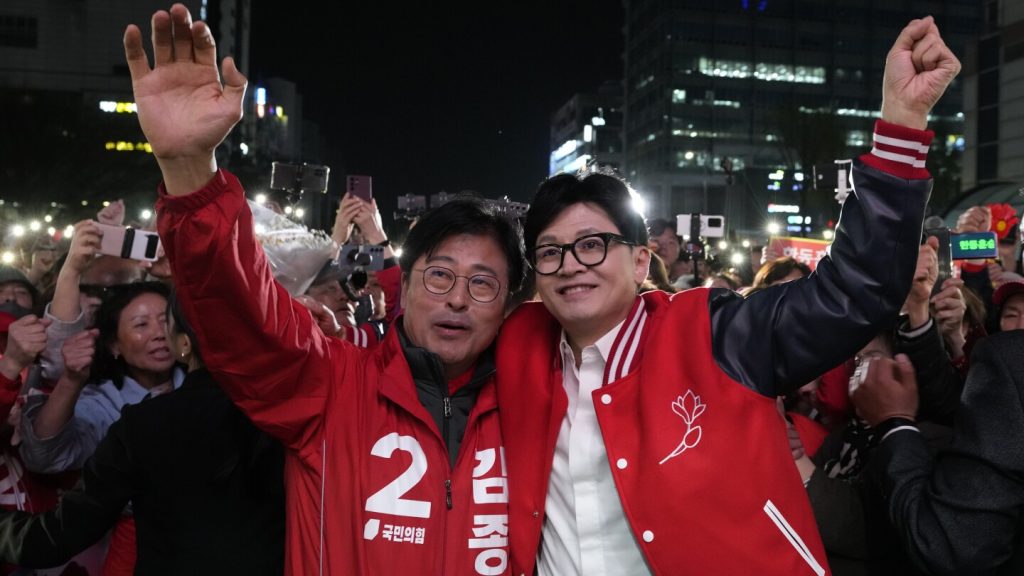In South Korea, voters are heading to the polls to elect a new 300-member parliament. The issues animating voters include soaring green onion prices, striking doctors, and a politician’s allegedly sexist jab at a female candidate. Many voters are focusing on domestic concerns such as jobs and taxes rather than traditional topics like North Korean nuclear threats and the U.S. security commitment to South Korea. Experts estimate that up to 30% to 40% of voters are politically neutral, and their choices could influence the election results.
The conservative-liberal divide in South Korea has led to growing polarization, but also a rise in moderate voters who prioritize issues like prices, jobs, and taxes over party affiliation. Roughly 30% of South Koreans identify as conservatives, 30% as liberals, and the remaining 40% as moderates. These moderates, who silently monitor livelihood issues, have the potential to sway election outcomes. Observers suggest that liberal parties may retain their parliamentary majority, making conservative President Yoon Suk Yeol an early lame duck. However, many moderates are still undecided on their vote.
President Yoon faced criticism after making comments about the price of green onions during a visit to a grocery mall. The average retail prices of green onions have reached some of the highest in recent years, leading to accusations from the opposition that Yoon is out of touch with reality. Rising prices of agricultural products have also contributed to voter dissatisfaction with the government’s handling of the economy. Meanwhile, thousands of doctors are on strike, protesting Yoon’s plan to increase medical school admissions, which they fear will undermine the country’s medical services.
Toxic rhetoric has been a significant issue in the election campaign, with rival parties engaging in offensive language and personal attacks. A controversial comment by the Democratic Party chairman criticizing a ruling party candidate for her alleged pro-Japanese views sparked outrage. The use of derogatory terms and personal insults has further exacerbated tensions between the parties. Former justice minister Cho Kuk, a controversial figure, has also entered the political landscape with his newly launched party projected to win several seats. The divisive nature of the election campaign has highlighted the deep political divisions in South Korea.
The outcome of the election remains uncertain, with moderates playing a crucial role in determining the results. Regardless of the outcome, President Yoon’s foreign policy agenda is expected to remain consistent, focusing on security cooperation with the U.S. and Japan, as well as a tough stance on North Korea’s nuclear program. The issues of green onion prices, doctor strikes, and toxic rhetoric may influence the final composition of the parliament, shaping the direction of South Korea’s political landscape in the coming years.


